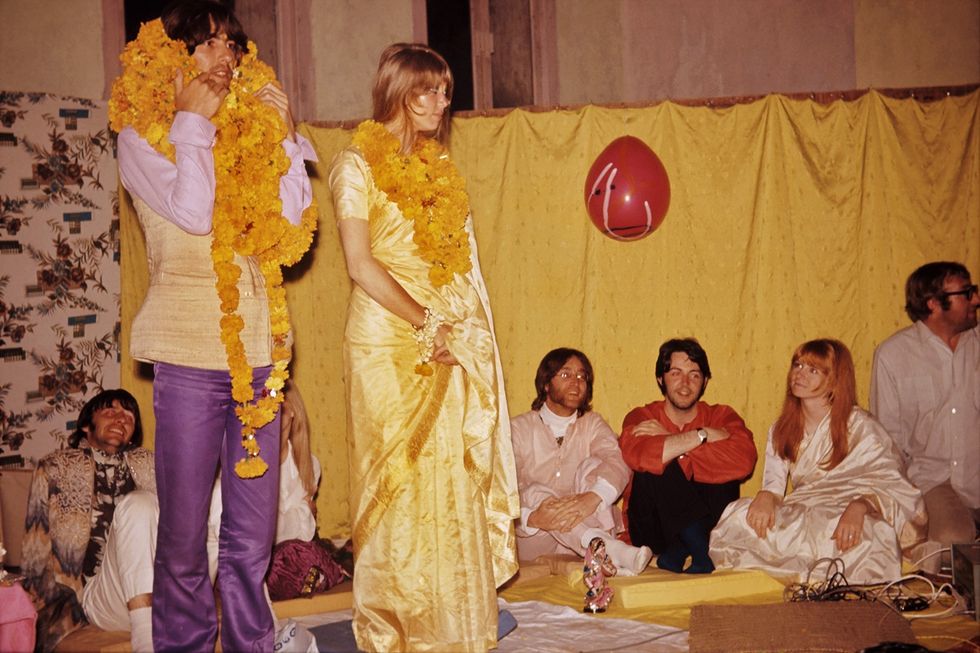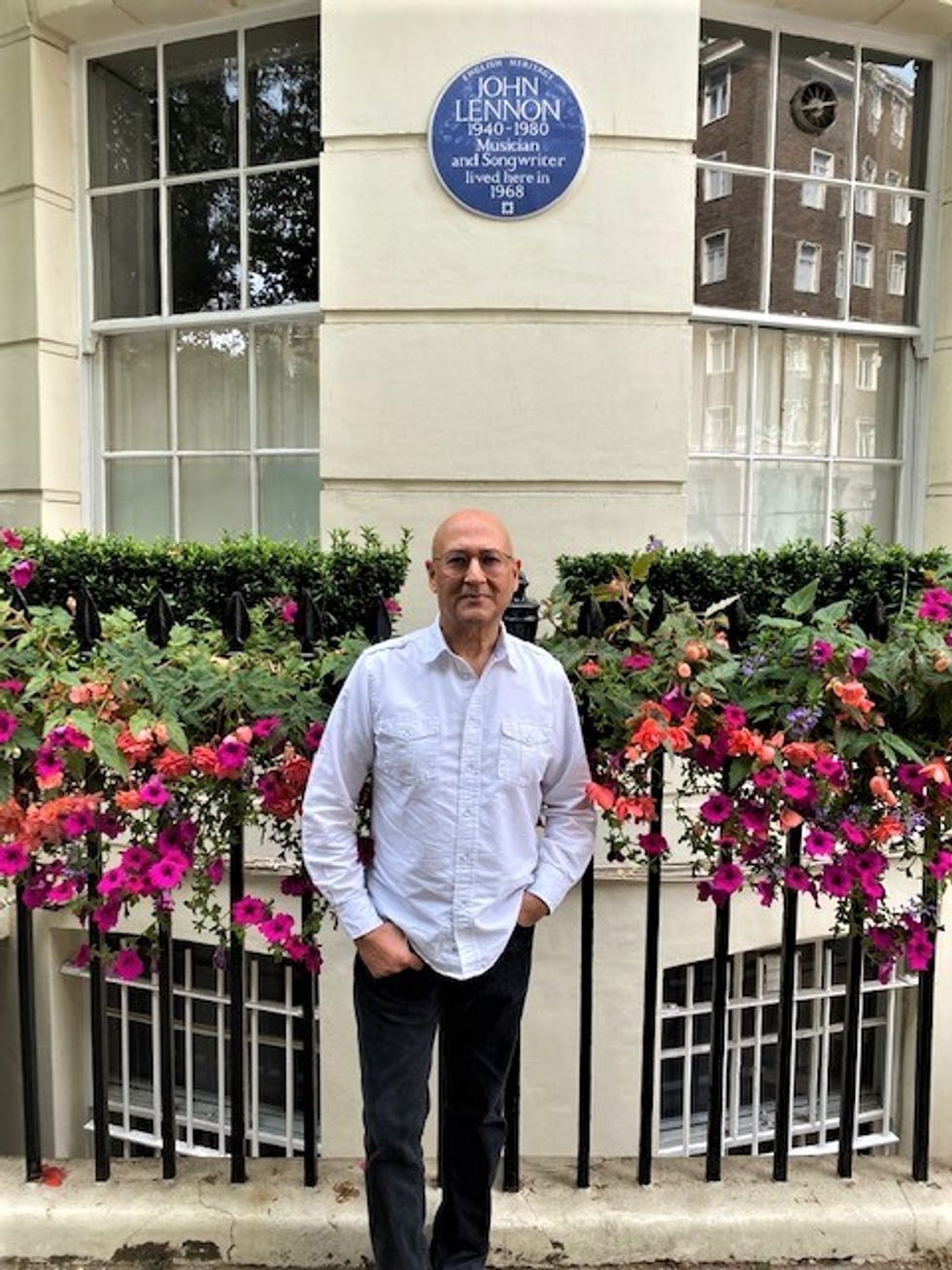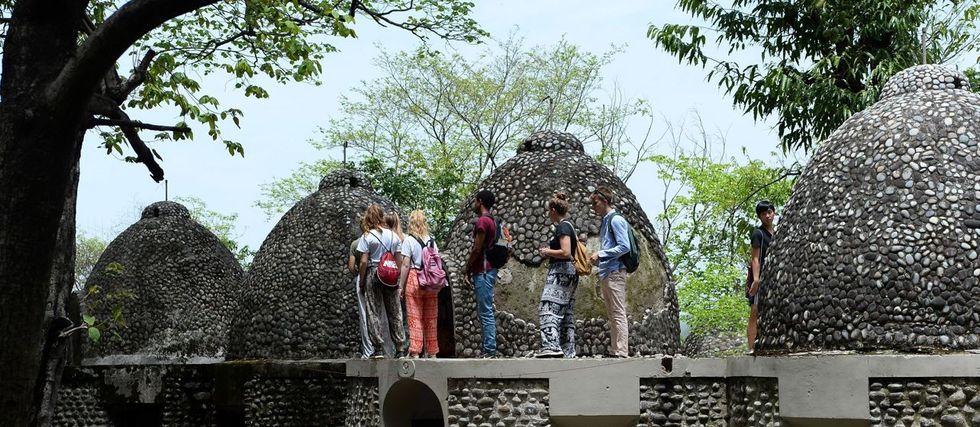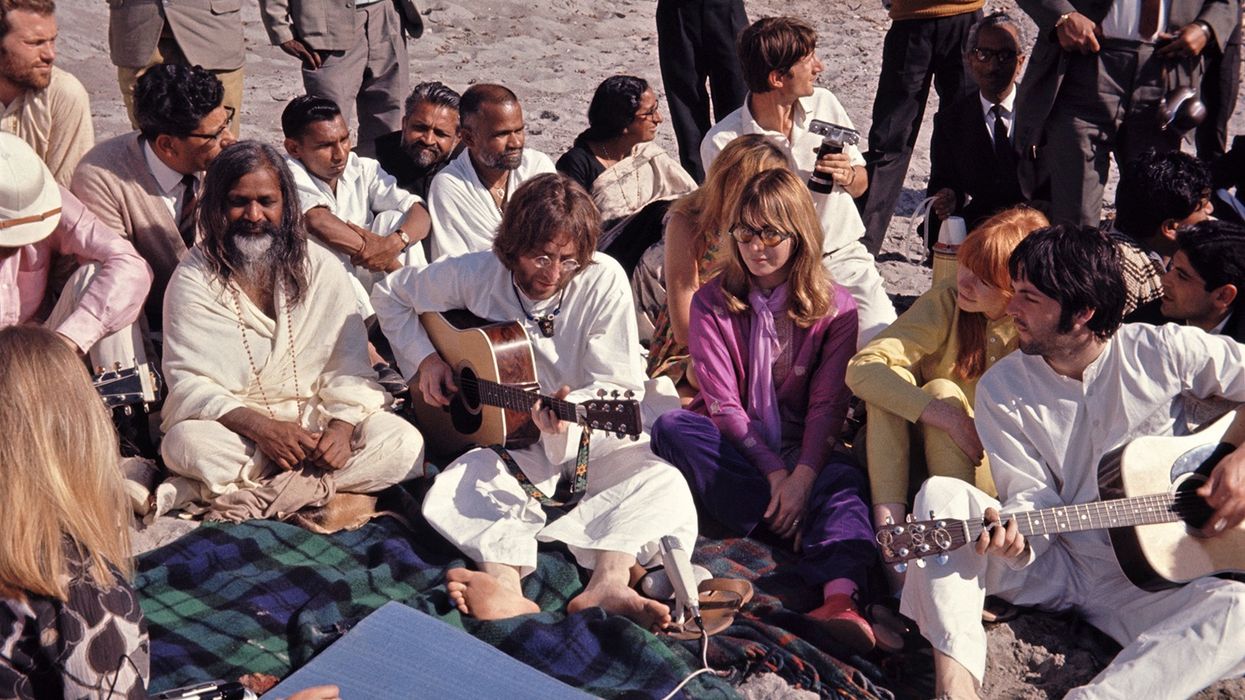A DOCUMENTARY about The Beatles’ deep love affair with India is being sold all over the world, but how the 92-minute film came to be made can now be told for the first time.
As reported in Eastern Eye at the end of May, The Beatles and India had its world premiere at the UK Asian Film Festival in London on June 6 this year. The man who is really responsible for this iconic documentary is its producer, Reynold D’Silva, whose core business, the Silva Screen Music Group, is putting out albums with film music and sound tracks.
Interviewed at his offices in Camden, north London, he told Eastern Eye his company had an association with one of The Beatles.
“I had the idea probably in the late 1980s when we were working with George Harrison’s HandMade Films,” recalled D’Silva. “We released four soundtracks from his company between 1988 and 1992.”
Harrison was one of the producers of the 1989 British black comedy fantasy film, How to Get Ahead in Advertising, which was directed by Bruce Robinson and starred Richard E Grant and Rachel Ward.
D’Silva, who is of Goan origin, was born in Bombay (now Mumbai) and came to the UK in the early 1970s.
He said: “The idea has been with me ever since the 1980s to try and do some sort of historical document on The Beatles and India. In 2015, I heard within the space of a month from two people that the ashram was (re)opening in Rishikesh. And I thought, ‘Oh, now it’s time to embark on that idea.’”

Rishikesh in the Himalayas was where The Beatles and their partners spent several weeks with the Maharishi Mahesh Yogi in 1968 and had a productive time making music outside a studio.
“But what happened was that I got diverted because someone came to me about doing a film on the 50th anniversary of Sergeant Pepper’s,” said D’Silva. “So, we did.” The result was a film, It Was Fifty Years Ago Today!
“The subtitle was The Beatles: Sergeant Pepper & Beyond,” he added. “It did pretty well through Netflix. It was shown on various airlines and in theatres in Europe. And then once that finished, we started on this project.”
One of the first to be recruited by D’Silva was the film’s director, Ajoy Bose, a long time Guardian journalist in Delhi “who was also a mad Beatles fan. He had written a book, Across the Universe: The Beatles in India. So we approached him.”
This was in October 2018, when Bose was a speaker at a seminar at Monmouth University in New Jersey in the US on the subject of The White Album which The Beatles released in 1968.
“Many of those songs were written in India,” D’Silva pointed out. “I sent a colleague of mine from London – Peter Compton – to meet him. He became the film’s co-director. And then I met Ajoy a few weeks later in Bombay in December 2018 – he came in from Delhi. And we started filming four months after that.
“Films aren’t our core business. So, it took a long time to put it together. Also, our hands had to be held because we had to navigate through the film world with all the different rights.”

The documentary has had extraordinary success. D’Silva said: “We’ve sold the film to Brit Box for the US and Canada, to HBO in South America, and to Channel 4 here in the UK. It’s coming out in January, but it’s already available on Sky and other stores as well. And we’ve just got a deal with RAI in Italy and NHK in Japan. We just don’t have anybody in India, at the moment. But I’m pretty sure we will. We did have an offer, but I didn’t really pick up on it.”
The film has also done well in Spain. “We came back from Spain two weeks ago. The film was shown there at three festivals. There’s an equivalent of a Nehru cultural centre in Valladolid, the old capital of Spain, about a two-hour drive from Madrid.
“There’s a guy over there called Guillermo Rodríguez, a Spaniard who runs the Casa de la India, which is affiliated to the Indian embassy and to the local government and to the national government. And he’s done some wonderful work there. On one floor, he had a Beatles and India exhibition. And on the next floor, he had a Ravi Shankar exhibition. His wife, who is also Spanish, is an Indian classical dancer. He is really championing our film.”
The documentary does not include any music from The Beatles. However, D’Silva has separately released an album, Songs inspired by the film: The Beatles and India.
“We recorded 19 songs that The Beatles either wrote in India or have an Indian connection. And when I say an Indian connection, for instance, we included Norwegian Wood (This Bird has flown). That was the first time that The Beatles used a sitar on their recordings.”

Bose was interviewed recently on BBC Radio 4’s The World Tonight by the presenter James Coomarasamy who set the scene for listeners: “A new documentary about The Beatles is coming out examining the Fab Four’s relationship with India. In 1968, John Paul, George and Ringo famously went to a Maharishi Mahesh Yogi’s retreat in the foothills of the Himalayas, accompanied by George’s wife, Patti, who’d introduced them. But the love affair between the band and the country went far beyond that.”
Bose emphasised: “It was a twoway affair, definitely. There’s a long journey with George picking up that sitar on that film set of Help. And then, step by step, India pulled in George and along with him the rest of The Beatles. Something happened to George after he fell in love with India because George’s stature suddenly grew in the band. He was bringing in something very new to the band, which was looking for something. So George’s India affair very much suited The Beatles when they were trying to reinvent themselves. For George, India would become a spiritual home.”
The film deals with how a new generation of Indian musicians is still inspired by The Beatles. “I think the most incredible thing is how these young musicians venerate a band which was (active) in the last century,” commented Bose.
“You hear these musicians (talk) about how much the Beatles still mean to them. To talk with such passion is really touching."




